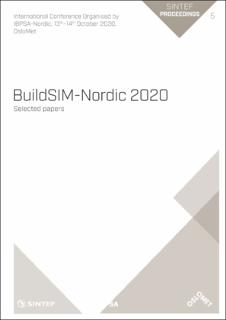Undefined modelling parameters impact on building simulation results: using IDA ICE according to the Estonian methodology for calculating building performance
Chapter, Peer reviewed
Published version
Date
2020Metadata
Show full item recordCollections
- SINTEF Proceedings [402]
Abstract
The Nordic countries have taken important and strict steps moving towards reducing building energy consumption. Energy performance estimation by dynamic building simulation has become a crucial part of the building design. The performance assessment methodology including pre-determined standardised input parameters vary from country to country. The purpose of this study was to analyse the impact of modelling parameters which are not pre-defined but influence the result, and define specific values to be used in the methodology to reduce the uncertainty and variations in the results. The assessed parameters include the definition of the first day of simulation, e.g. startup date, weekday and calendar year, startup pre-simulation specifics and simulation splitting. The simulations were conducted using dynamic simulation software IDA ICE. Calculations were carried out according to the Estonian national methodology for calculating energy performance of buildings. The study analyses the impact of modelling input data parameters which are not pre-defined in the methodology. The effects of these parameters are illustrated by modelling and simulating multiple typical 5-day usage office buildings. The results show that the startup date can affect the results of the net ventilation heating energy, net ventilation cooling energy or energy performance value over 1 kWh/(m²×a). This study highlights the importance of the initial modelling parameters determination on the building energy consumption calculation results.

